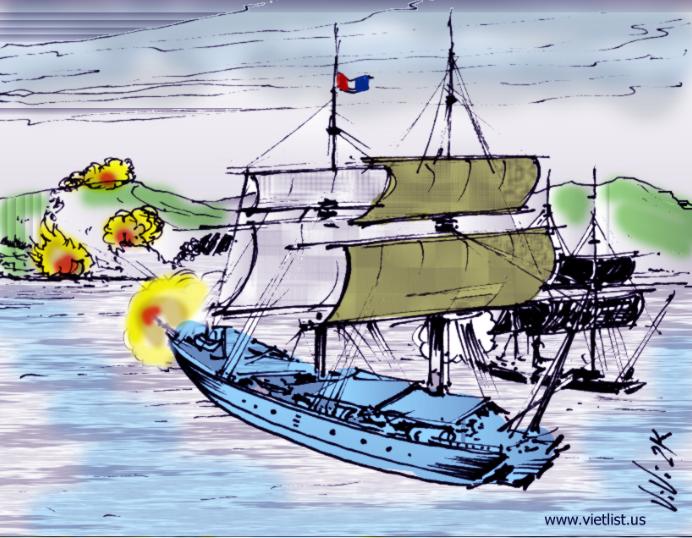
81. Năm 1841, vua Thiệu Trị - Pháp bắn phá Đà Nẵng: Vua Thiệu Trị là một ông vua hiền hòa, không có nhiều cải cách. Năm 1847 có 2 tàu chiến của Pháp đậu ở Đà Nẵng, đang điều đình xin cho bỏ cấm đạo. Vì hiểu lầm là quân ta sắp tấn công, họ bắn chìm nhiều thuyền bè ta rồi bỏ chạy.
Year 1841, King Thieu Tri: King Thieu Tri was a benevolent king but he did not reform our country much. In 1847, two French warships anchored at Da Nang port to negotiate with the imperial court to have religious suppression lifted. They misunderstood that our army was going to attack them, so they started the fire sinking many of our boats then ran away.
An 1841, le roi Thiêu Tri: roi Thiêu Tri fut un roi bienveillant mais il ne réforma pas beaucoup notre pays. En 1847, deux navires de guerre français s’ancrèrent dans le port de Dà Nang pour négocier avec la cour impériale la levée de la répression religieuse. Ils comprirent de façon erronée que notre armée était sur le point de les attaquer, pour cette raison ils commencèrent à faire feu coulant beaucoup de nos bateaux et s’enfuirent.
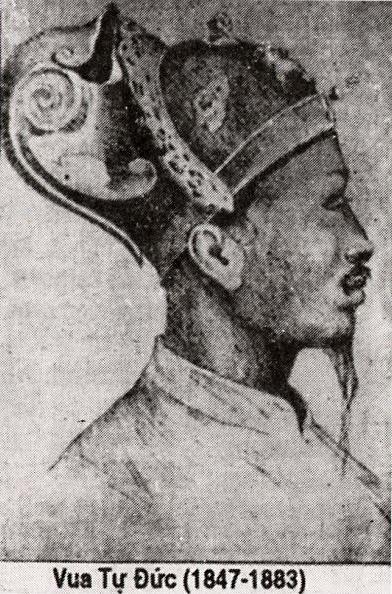
82. Năm 1847, vua Tự Đức: Tự Đức là một ông vua học rộng, hiểu nhiều, thờ mẹ rất chí hiếu . Ông chăm lo việc vua, nhưng quan lại phần đông là những người thủ cựu, hẹp hòi. Nhiều đề nghị canh tân, cải cách của ông Nguyễn Trường Tộ và những người khác đều bị bác bỏ. Nước ta dùng chính sách bế quan tỏa cảng, không chịu giao tiếp với nước ngoài nên mất đi nhiều cơ hội quý báu mở cửa học hỏi, giao thương. Nếu vua Tự Đức có những phản ứng thích hợp, ông đã có thể đưa đất nước ta từ chỗ ngu muội, lạc hậu lên hàng phát triển, cường thịnh như là nước Nhật.
Bài đọc thêm về ông Nguyễn Trường Tộ . More reading about Mr. Nguyen Truong To
Year 1847, king Tu Duc: King Tu Duc was not only a knowledgeable and understanding king, but also a good and thankful son. Even though he worked hard, many of his imperial officials were conservative and narrow-minded. Many proposals to reform our country from Mr. Nguyen Truong To and others were rejected. Since our country applied a closed-door policy, we lost many opportunities to learn good things from other countries and to do business with them. If King Tu Duc took proper movements, he could have led our country to wealth and success.
An 1847, le roi Tu Duc: le roi Tu Duc n'était pas seulement un roi bien informé et compréhensif, mais aussi un bon et reconnaissant fils. Même s’il travaillait dur, nombre de ses fonctionnaires impériaux furent conservateurs et bornés. De nombreuses propositions pour réformer notre pays de M. Nguyên Truòng Tô et d'autres furent rejetées. Puisque notre pays appliqua une politique de fermeture, nous perdîmes de nombreuses occasions d'apprendre de bonnes choses d'autres pays et de faire des affaires avec eux. Si le roi Tu Duc avait pris de bonnes décisions de changements, il aurait pu conduire notre pays à la richesse et au succès comme le Japon.
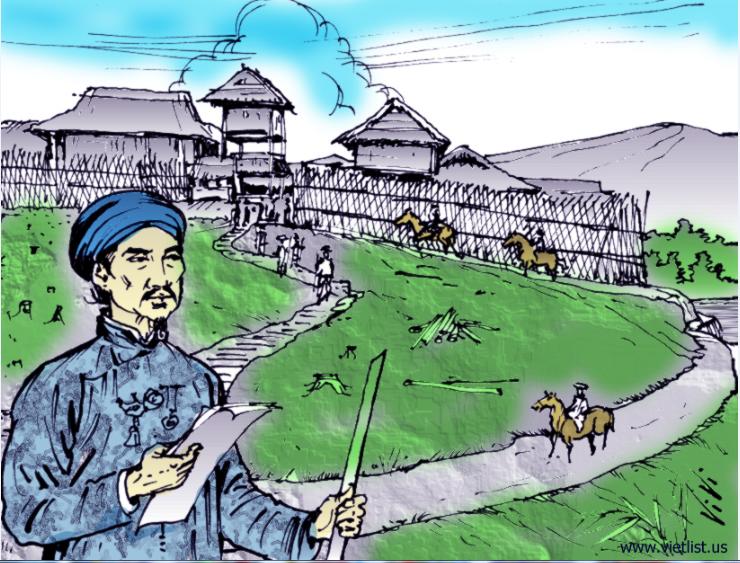
83. Pháp chiếm Nam kỳ: Năm 1859, Pháp đem tàu chiến tấn công Đà Nẵng rồi đánh chiếm thành Gia Định. Ông Nguyễn Tri Phương đắp thành Kỳ Hòa miệt Chí Hòa chống giặc, nhưng rồi cũng thua. Sau đó Pháp đánh tiếp và lấy được Mỹ Tho, Biên Hòa, Vĩnh Long.
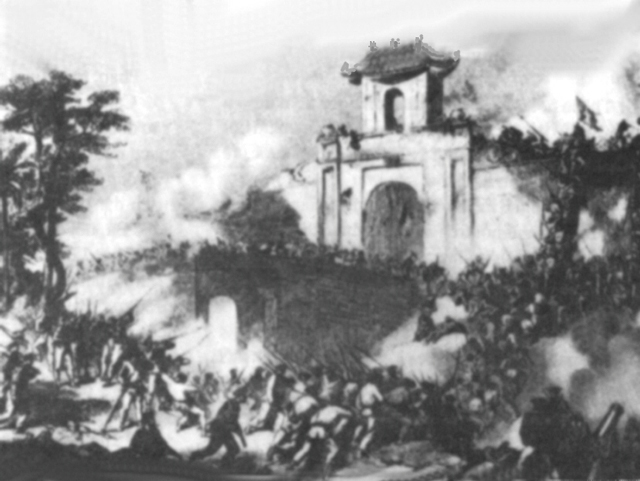
French seized the South: In 1859, the French used their warships to attack Da Nang and then seized Gia Dinh city. Mr. Nguyen Tri Phuong built Ky Hoa fort to fight back, but later defeated. French then attacked and seized My Tho, Bien Hoa and Vinh Long provinces.
Les français qui s’emparent du Sud: En 1859, les Français employèrent leurs navires de guerre pour attaquer Dà Nang et s’emparèrent de la ville de Gia Dinh. M. Nguyên Tri Phuong construit le fort de Ky Hoà pour riposter, mais fut défait plus tard. Les français attaquèrent et prirent alors My Tho, Biên Hoà et Vinh Long.
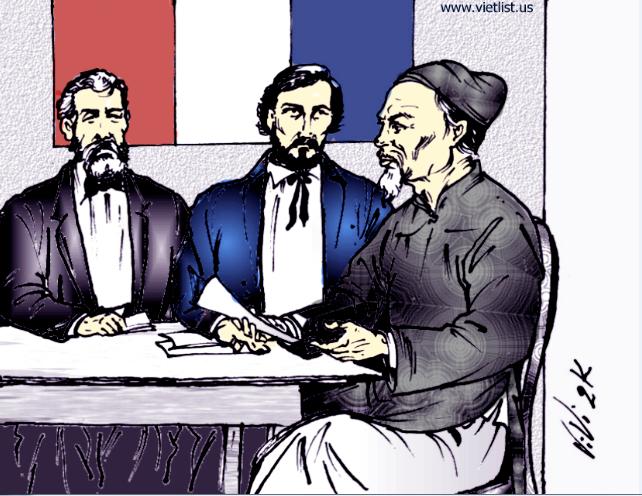
84. Thất trận, triều đình ký hòa ước Nhâm Tuất, 1862, nhường Biên Hòa, Gia Định, Định Tường cho Pháp. Triều đình cho Pháp, Ý tự do giảng đạo và phải bồi thường thiệt hại cho 2 nước nầy. Triều đình cũng cử ông Phan Thanh Giản đi sứ nước Pháp để xin chuộc lại 3 tỉnh Nam Kỳ nhưng không thành công.
Losing the battles, the imperial court signed a peace treaty to offer Bien Hoa, Gia Dinh and Dinh Tuong provinces to the French. The imperial courts also allowed French and Italian to preach Catholicism, and also paid war indemnity to French and Italian. The imperial court sent Mr. Phan Thanh Gian to France on a mission of redeeming 3 provinces of the South, but did not succeed.
Perdant les batailles, la cour impériale signa un traité de paix pour offrir les provinces de Biên Hoà, Gia Dinh, Dinh Tuòng aux Français. L’ensemble de la cour impériale permit également aux français et aux italiens de prêcher le catholicisme, et aussi aux français et aux italiens de percevoir une indemnité de guerre. La cour impériale envoya M. Phan Thanh Gian en France pour une mission de rachat des 3 provinces du Sud, mais ne réussit pas.
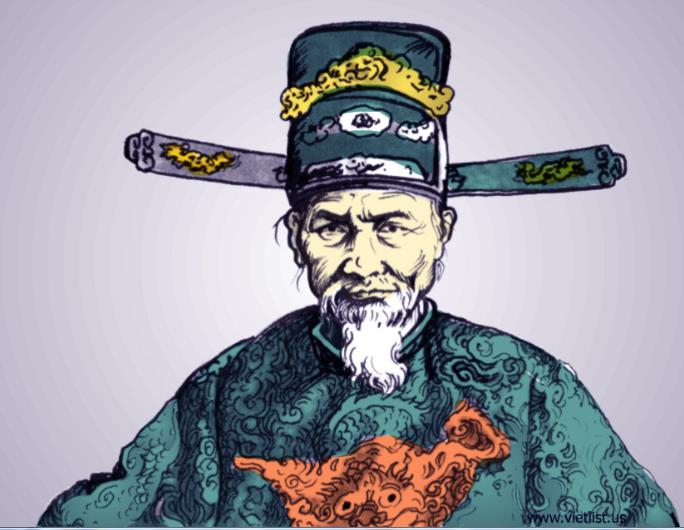
85.Ông Phan Thanh Giản: Năm 1867, Pháp lại đánh tiếp chiếm 3 tỉnh Vĩnh Long, An Giang và Hà Tiên. Ông Phan Thanh Giản chống không lại, đành nộp thành rồi uống thuốc độc tự tử chết. Người Pháp kính trọng lòng trung liệt của ông đối với đất nước nên cho chôn cất ông đàng hoàng.
Mr. Phan Thanh Gian: In 1867, the French again attacked and seized 3 provinces Vinh Long, An Giang and Ha Tien. Mr. Phan Thanh Gian was defeated. He had to give up the provinces then committed suicide with poison. The French respected his loyalty to the country and carefully burried him.
M. Phan Thanh Gian: En 1867, les français attaquèrent de nouveau. M. Phan Thanh Gian fut défait. Les français prirent 3 provinces Vinh Long, An Giang et Hà Tiên. Il dut les abandonner et se suicida ensuite avec du poison. Les Français respectèrent sa loyauté envers le pays et l’enterrèrent soigneusement.
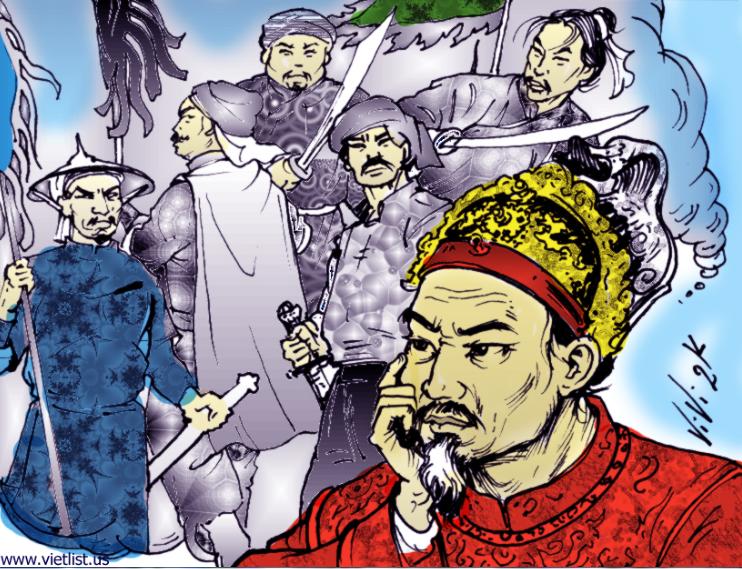
86. Giặc giã thời Tự Đức: Dù Tự Đức là 1 ông vua chăm chỉ, nhưng giặc giã nổi lên rất nhiều vì lòng người còn nhớ nhà Lê. Thời đó có giặc Tam Đường, giặc Châu Chấu, giặc tên Phụng, giặc kinh thành, giặc Khách...
Rebellion in Tu Duc reign: Even though Tu Duc was a hard-working king, many rebellions raised up, since people still remembered the Le time. There were Tam Ðuong rebellion, Chau Chau rebellion, Phung rebellion, capital rebellion, and Chinese rebellion…
Rébellion durant le règne de Tu Duc: Même si Tu Duc était un roi qui travaillait dur, de nombreuses rébellions se déclenchèrent puisque les gens se souvenaient encore de la dynastie de Lê. Il y eu la rébellion Tam Ðuòng, la rébellion Châu Châu, la rébellion Phung, la rébellion dans la capitale et la rébellion chinoise ...
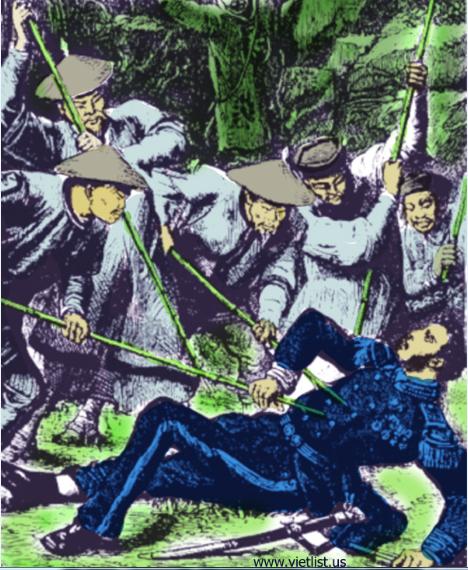
87. Năm 1873, Pháp chiếm Bắc kỳ lần thứ 1: Lợi dụng tên Đồ Phổ Nghĩa gặp cản trở trong việc buôn bán ngoài Bắc, đại úy Garnier đem tàu chiến từ Sài gòn ra tấn công thành Thăng Long. Dù vũ khí thô sơ, ông Nguyễn Tri Phương anh dũng chiến đấu giữ thành, bị thương và bị giặc bắt. Ông không chịu để giặc băng bó vết thương, nhịn ăn mà chết. Về sau đại úy Garnier bị quân ta giết chết ở cầu Ô Giấy.
Year 1873, French occupied the North the first time: Taking the advantage of the matter that Jan Dupuis was prevented to do business in the North, captain Garnier sent warships from Saigon out to the North to attack Thang Long capital. Mr. Nguyen Tri Phuong bravely fought back, but he got wounded and was arrested by the enemy. He didn’t accept the medical treatment from the enemy and starved himself till died. Later, captain Garnier was killed at Ô Giay bridge.
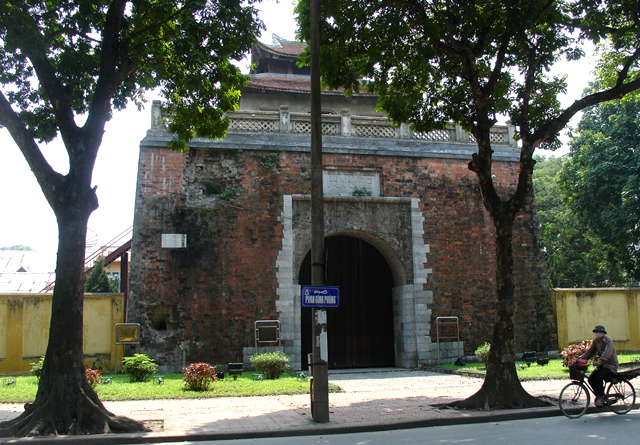
An 1873, les français occupent le Nord pour la première fois: Prenant prétexte que Jean Dupuis (Dô Phô Nghia) était empêché de faire des affaires dans le Nord, le capitaine Garnier envoya des navires de guerre de Saigon au Nord pour attaquer la capitale Thang Long. M. Nguyên Tri Phuong luta courageusement, mais il fut blessé et fut arrêté par l'ennemi. Il n'accepta pas le traitement médical de l'ennemi et fit la grève de la faim jusqu’à en mourir. Plus tard, le capitaine Garnier fut tué au pont Ô Giây par notre armée.
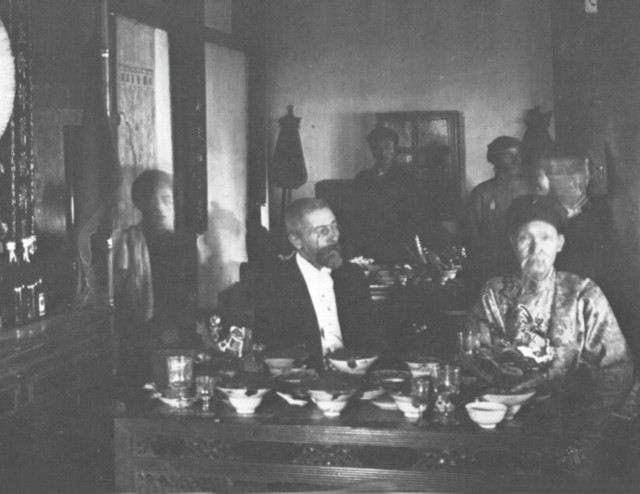
88. Năm 1874, Hòa ước Giáp Tuất : Triều đình Huế ký hòa ước với Pháp, Bắc kỳ được trả lại cho Việt Nam. Việt Nam cho người Pháp tự do giảng đạo và thương gia Pháp được tự do buôn bán. Nhưng sáu tỉnh Nam kỳ vẫn thuộc về nước Pháp.
Year 1874, Giap Tuat peace treaty: Hue imperial court signed the peace treaty with French that the North was returned to Vietnamese. French missionaries could freely preach and French businessmen freely did business. But six Southern provinces still belonged to France.
An 1874, le traité de paix de Giap Tuât: la cour impériale de Huê signa le traité de paix avec les français selon lequel le Nord était remis aux viêtnamiens. Les missionnaires français pourraient librement prêcher et les hommes d'affaires français faire librement des affaires. Mais six provinces du Sud appartenaient toujours à la France.
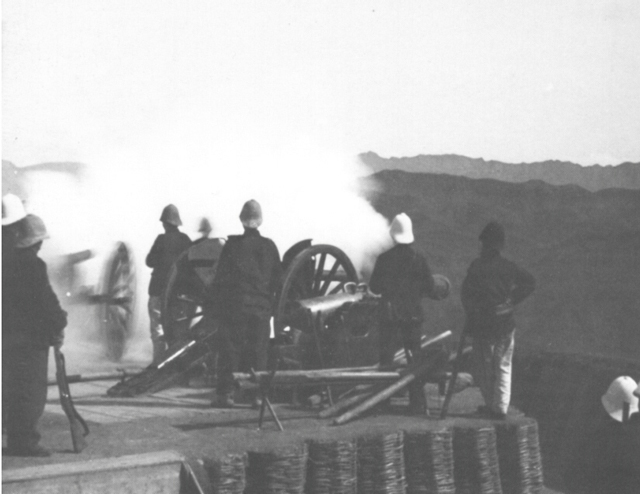
89. Pháp chiếm Bắc kỳ lần thứ 2, tổng đốc Hoàng Diệu tự vẫn: Đổ lỗi việc giặc Khách ngăn trở người Pháp buôn bán, quân Pháp đem quân ra đánh thành Hà Nội lần thứ 2. Thành mất, quan Tổng đốc Hà Nội là Hoàng Diệu thắt cổ tự vẫn.
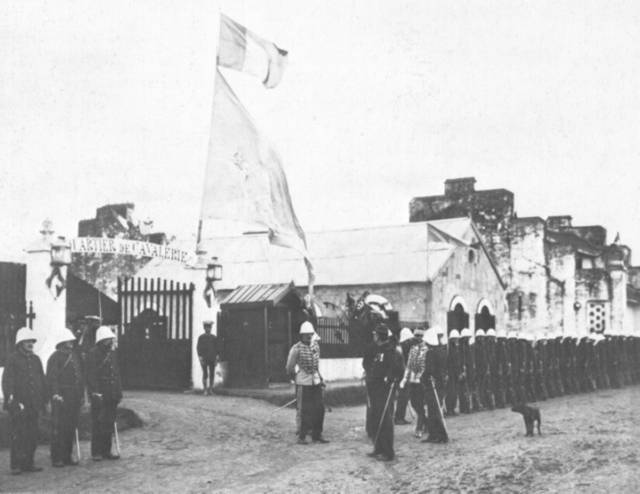
The French occupied the North the second time: Blaming on the Chinese rebellion that prevented the French business on the North, French troops were sent to north to attack Ha Noi city the second time. The French occupied Ha Noi. Ha Noi province chief, Hoang Dieu, hang himself for losing the city.
Les Français occupent le Nord une seconde fois: Blâmant la rébellion chinoise qui les empêchait de faire des affaires au Nord, les français y envoyèrent leurs troupes pour attaquer Hà Nôi. Le gouverneur de la province de Hà Nôi, Hoàng Diêu se suicida en se pendant pour avoir perdu la ville de Hà Nôi.
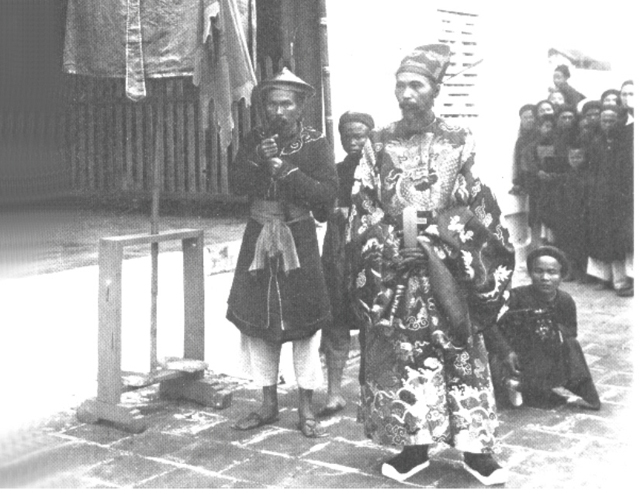
Một ông quan triều Nguyễn
90. Sự sai lầm của quan quân nhà Nguyễn: Trong khi các cường quốc kỹ nghệ cần mở rộng giao thương buôn bán thì vua quan nước ta u tối không biết thừa cơ mở cửa ra học hỏi, thông thương cho nước giàu dân mạnh. Nước mình lại đóng cửa cấm đoán mọi thứ, làm các nước khác có cớ để xâm lấn nước ta . Thời đại biến đổi mà mình không biết biến đổi. Trong khi Nhật Bản, Thái Lan mở cửa giao thương học hỏi, thì mình tự cho mình là văn minh, coi các nước khác là lạc hậu, mọi rợ.
The mistakes of imperial officials and generals of the Nguyen dynasty: While industrial great powers wanted to do business with out country, our kings and imperial officials didn’t take that opportunity to learn and trade for our success. We closed all ports and prohibited foreigners from doing everything, creating chances for other countries to invade ours. The world was making fast progresses but our country was not. While Japan, and Thailand opened for learning and doing business, we considered ourselves as civilized, and other countries as behind the times, and savage.
Les erreurs des fonctionnaires impériaux et les généraux de la dynastie des Nguyên: Alors que les grandes puissances industrielles voulaient faire des affaires avec le pays, nos rois et les fonctionnaires de l'Empire ne saisirent pas cette occasion d'apprendre et d'échanger pour notre succès. Nous fermâmes tous les ports et interdîmes aux étrangers de tout faire, créant des occasions pour les autres pays de nous envahir. Le monde faisait de rapides progrès, mais notre pays non. Alors que le Japon et la Thaïlande s’ouvraient pour apprendre et faire des affaires, nous nous considérions comme civilisé, et les autres pays en retard, et sauvage.
Một số hình ảnh triều Nguyễn:
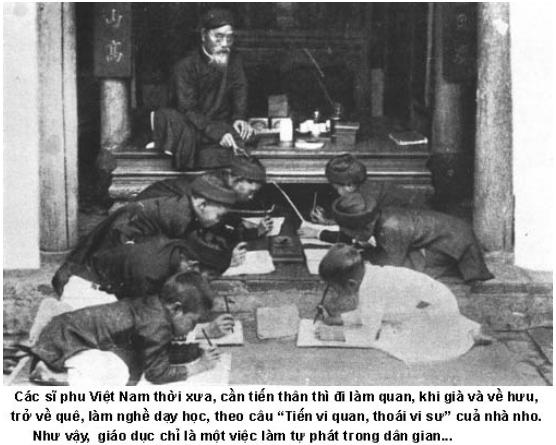
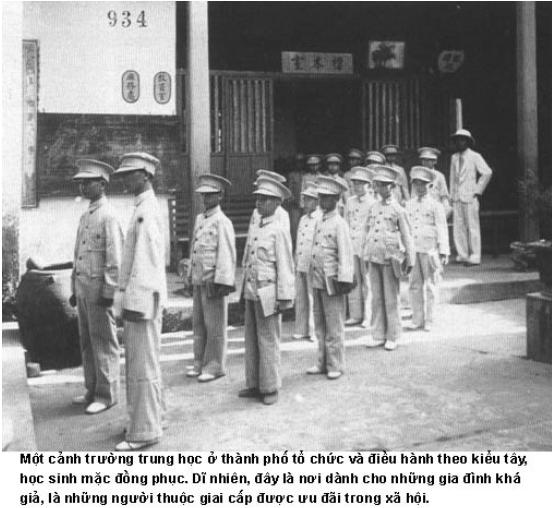
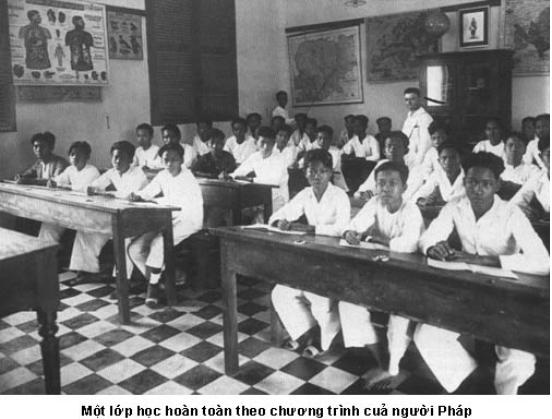
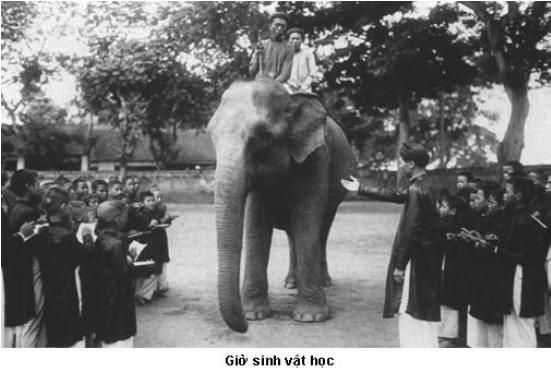
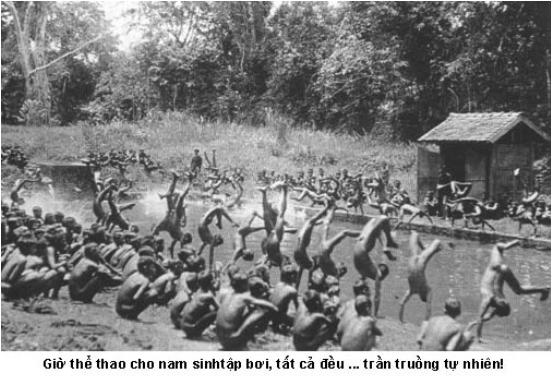
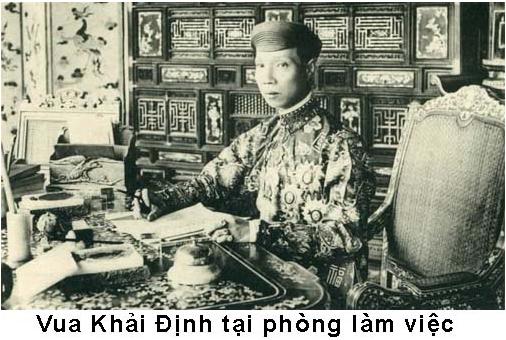
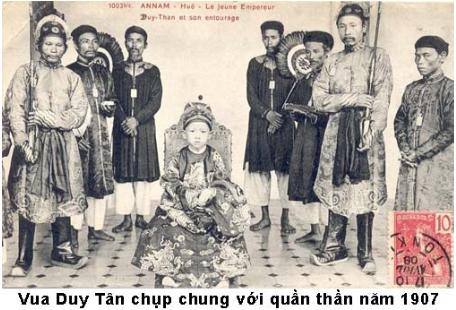
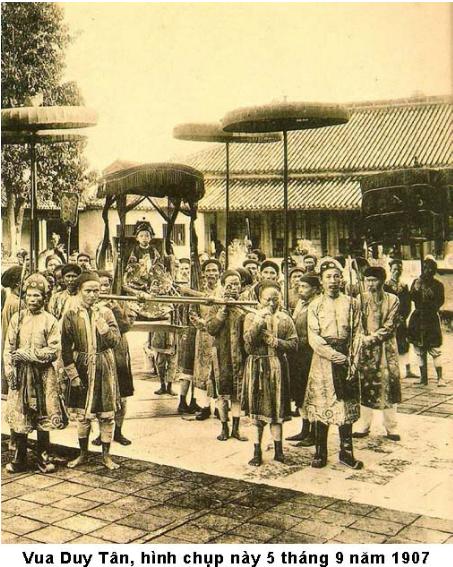
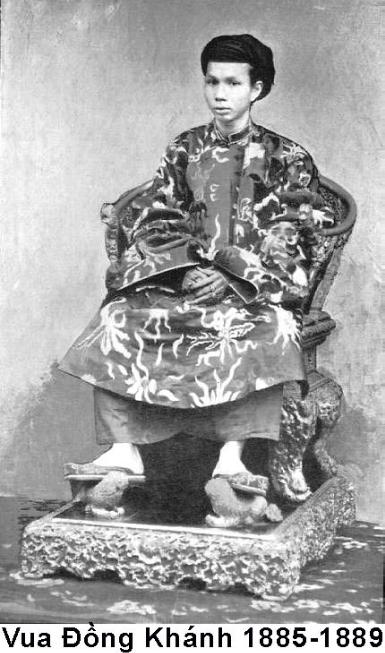
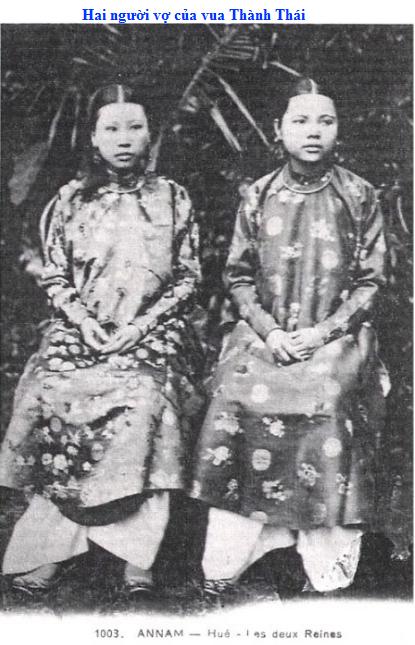
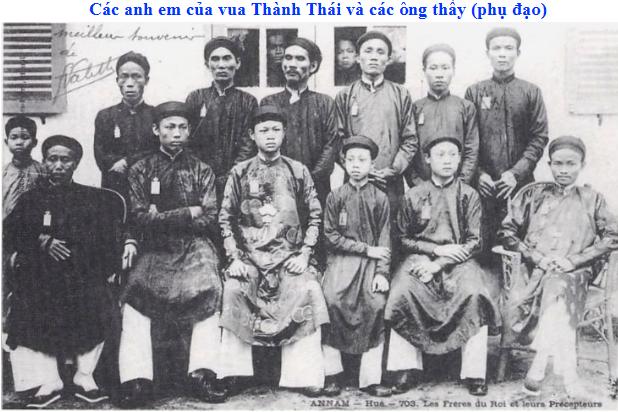
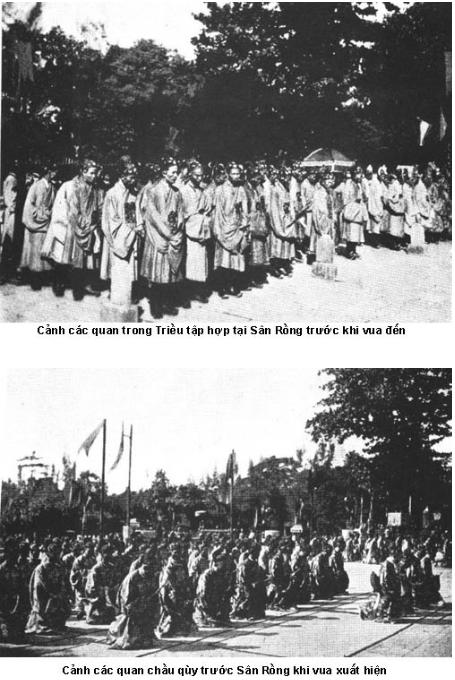
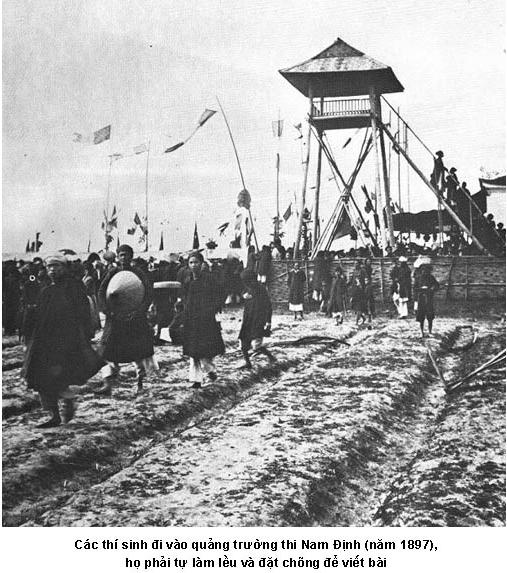
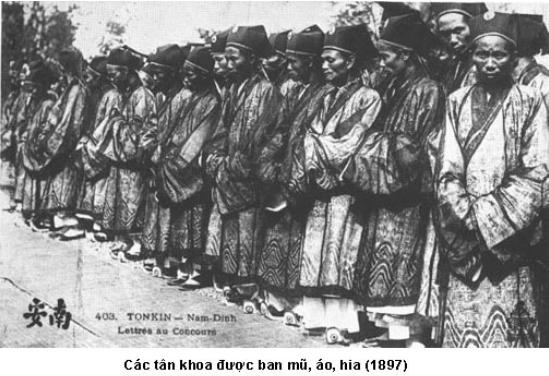
Không có nhận xét nào:
Đăng nhận xét